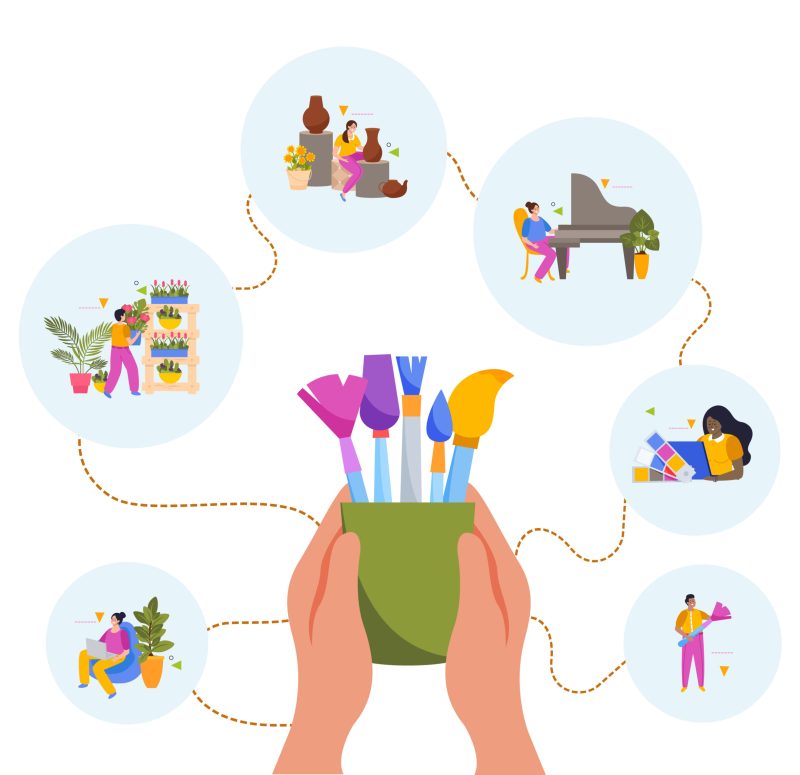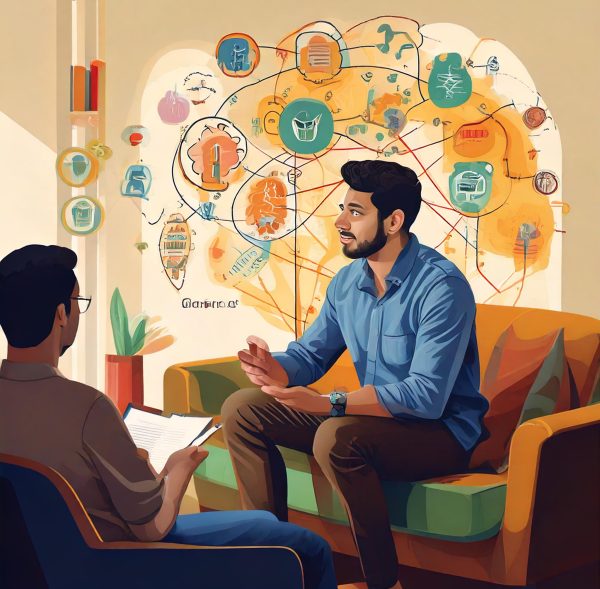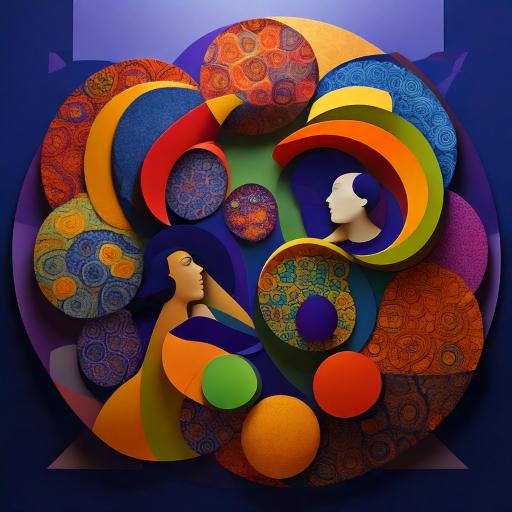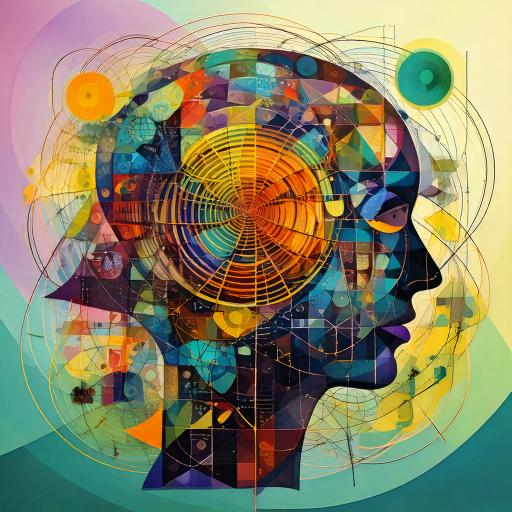Certificate
Art Certificate!
Introduction to Art Therapy (30 Hours)
- History and Development of Art Therapy
- Core Principles of Art Therapy
- Relationship Between Art and Psychotherapy
- Tools and Methods Used in Art Therapy
- Applications of Art Therapy
Theoretical Foundations of Art Therapy (40 Hours)
- Psychoanalytic Theories and Art Therapy
- Unconscious Mind and Creativity
- Ego and Identity Development in Art Therapy
- Object Relations and Art Therapy
- Cognitive-Behavioral Approaches and Art Therapy
Techniques Used in Art Therapy (50 Hours)
- Therapeutic Interventions with Drawing and Painting
- Collage and Sculpture Techniques
- Free Drawing and Expression Techniques
- Therapeutic Work with Photography and Video
- Art Therapy with Rituals and Symbols
Psychopathology in Art Therapy (50 Hours)
- Expression of Mental Disorders Through Art Therapy
- Trauma and Grief Work with Art Therapy
- Depression, Anxiety, and Art Therapy
- Personality Disorders and Art Therapy
- Art Therapy for Psychopathology in Children and Adolescents
Case Analysis and Assessment in Art Therapy (50 Hours)
- Client Assessment in the Art Therapy Process
- Case Analysis and Treatment Planning
- Individual and Group Therapy Work with Art Therapy
- Observation and Evaluation in Art Therapy
- Case Presentations and Discussion
Working with Children and Adolescents in Art Therapy (40 Hours)
- Art Therapy with Children
- Art Therapy with Adolescents
- Art Therapy in Developmental Processes
- Play and Imagination in Art Therapy
- Self-Expression for Children Through Art Therapy
Ethics and Professional Principles in Art Therapy (30 Hours)
- Ethical Issues in Art Therapy
- Client Confidentiality and Privacy
- Therapist-Client Relationship and Boundaries
- Cultural Sensitivity in Art Therapy
- Principles of Ethical Intervention in Art Therapy
Final Project and Examination (30 Hours)
- Case Presentations with Art Therapy
- Preparation of the Final Project
- Evaluation of Practical Sessions
- Certification Exam
Art Therapy Certificate
An art therapy certificate is a document awarded to individuals trained in the therapeutic use of art in the healing process. This certificate grants therapists the competency to help individuals express and resolve their emotional, mental, and social problems through various art tools (drawing, painting, sculpture, collage, etc.). Art therapy enables individuals to express themselves, cope with trauma, and enhance their mental well-being by utilizing creative art processes in mental health.
What is Art Therapy?
Art therapy is a type of psychotherapy that assists individuals in expressing themselves and understanding their emotional/psychological state through creative art processes (drawing, sculpture, collage, music, etc.). It is a powerful tool, especially for individuals who struggle to express themselves verbally, and is widely used for trauma, depression, anxiety, stress, relationship issues, and more.
What is an Art Therapy Certificate?
An art therapy certificate is awarded to individuals who have completed a training program granting them the authority to practice this form of therapy. Obtaining this certificate demonstrates that the individual is competent in art therapy applications and can use art tools professionally in therapeutic processes.
What Can an Art Therapy Certificate Achieve?
An art therapy certificate grants individuals competence in the following areas:
- Expression Through Art: Art therapy allows individuals to express emotional and traumatic situations that are difficult to articulate verbally through art.
- Emotional and Mental Health: Certified art therapists work to improve the emotional and mental health of individuals. They help individuals cope with trauma, anxiety, and other mental health issues using the creative power of art.
- Healing Process: Art therapy assists individuals in connecting with themselves, processing negative experiences, and aiding in their recovery.

Where Can Art Therapy Certificate Holders Work?
Individuals with an art therapy certificate can work in different areas and with various age groups. Here are some roles and places where certified art therapists can work:
1. Psychotherapy and Counseling Centers
As an art therapist, you can organize individual or group therapy sessions in psychotherapy centers. Work with individuals dealing with psychological issues such as depression, anxiety, and trauma, providing therapy through art.
2. Hospitals and Clinics
You can practice art therapy in hospitals or psychiatric clinics specializing in mental health. You may work particularly with children, adolescents, trauma victims, and individuals with psychiatric disorders.
3. Schools and Educational Institutions
As a school psychological counselor, you can help children and adolescents solve emotional issues through art therapy. Work with children who have learning difficulties or have experienced trauma, helping them express themselves.
4. Rehabilitation Centers
Work as an art therapist with individuals struggling with addiction, supporting their recovery processes through art therapy in rehabilitation centers.
5. Child Development Centers
Art therapy is a powerful tool for supporting children's emotional and social development. Work in child development centers, helping children resolve psychological issues through art.
6. Elderly Care Homes
Conduct art therapy sessions with elderly individuals, improving their mental well-being and helping them cope with neurological conditions such as dementia or Alzheimer’s.
7. Private Counseling and Therapist Services
Individuals with an art therapy certificate can open their own counseling centers and provide art therapy services to private clients.
8. Trauma Centers
Work with trauma survivors (e.g., victims of sexual abuse, war survivors) to help them process and heal from their trauma through art therapy.
9. Mental Health Organizations and NGOs
Individuals with an art therapy certificate can work in mental health-related non-governmental organizations, especially in projects assisting trauma, substance abuse, domestic violence, and abuse survivors.
10. Crisis Intervention Teams
Art therapists can work with victims during natural disasters, societal traumas, and crisis situations, helping them process trauma through art therapy.
Benefits of an Art Therapy Certificate
- Specialization: The art therapy certificate allows you to specialize in therapeutic processes by using the healing power of art.
- Career Opportunities: Certified art therapists can pursue careers in counseling centers, clinics, schools, hospitals, and more.
- Creative and Effective Treatment: Art therapy offers an effective and creative treatment method for dealing with trauma and mental health issues.
- Working with Different Age Groups: Provides the opportunity to work with various age groups, including children, adolescents, adults, and the elderly.










